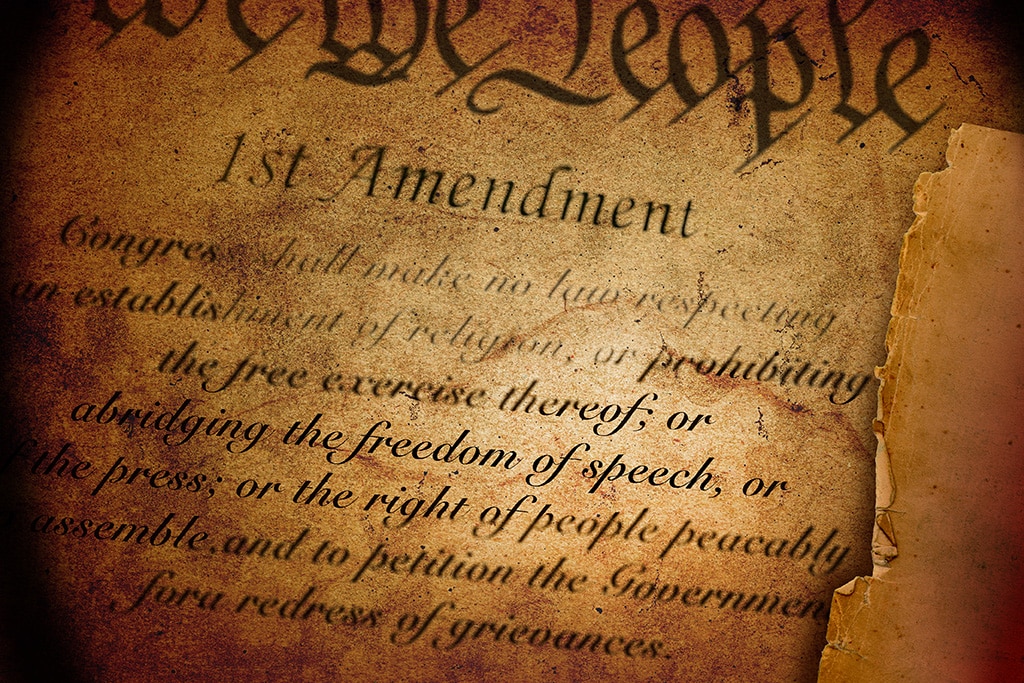The First Amendment, ratified in 1791, along with the rest of the Bill of Rights, encompasses five freedoms of expression. The evolution of both language and the law since the 18th century can make the First Amendment a little difficult to understand in the 21st century.
Congress shall make no law respecting an establishment of religion, or prohibiting the free exercise thereof; or abridging the freedom of speech, or of the press; or the right of the people peaceably to assemble, and to petition the Government for a redress of grievances.
The First Amendment is best understood by reviewing it phrase by phrase and freedom by freedom:
Congress Initially, this meant Congress and no other form of government. It did not include state governments. Through a process called incorporation, the Supreme Court has expanded most of the Bill of Rights to the states. Today the First Amendment protects us from actions of any form of government.
shall make no law “Law” would include any government activity. It’s not limited to legislation.
respecting an establishment of religion The first of two clauses addressing freedom of religion, it bars government from imposing or endorsing a religious faith. This is often described as the need to “separate church and state.”
or prohibiting the free exercise thereof This gives us the right to worship as we choose, free of government interference or control. However, this phrase would not typically exempt persons of faith from generally applicable laws.
or abridging the freedom of speech Freedom of speech protects a wide range of expression, including art, film, dance, literature and music, as well as symbolic efforts to convey ideas. It essentially guarantees the right to share ideas, regardless of merit, and protects the rights of individuals, groups, businesses and other institutions.
or of the press Originally referring to newspapers, the only professional media then in existence, this phrase now encompasses all forms of news media, including the work of citizen journalists.
or the right of the people peaceably to assemble Assembly today would include marches and rallies. This freedom also encompasses the right of association with others.
and to petition the Government for a redress of grievances. This grants the right to ask government to address problems and concerns.
It’s practiced most often and effectively by lobbyists pushing for and against legislation. The right to petition does not require government to respond or even listen to the request.
The Free Speech Center newsletter offers a digest of First Amendment- and news media-related news every other week. Subscribe for free here: https://bit.ly/3kG9uiJ

